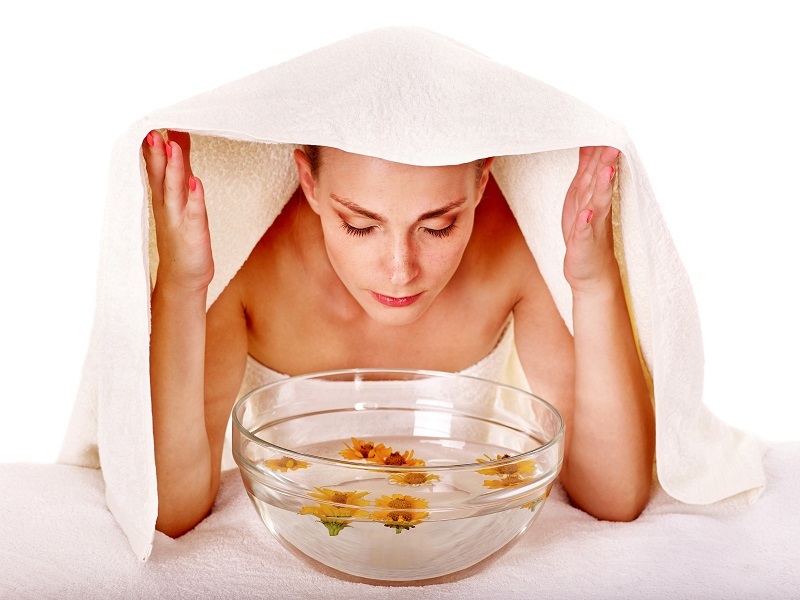Cut Flowers Made Easy: Care Tip and Tricks
Posted on 01/07/2025
Cut Flowers Made Easy: Care Tips and Tricks
Fresh cut flowers instantly elevate any space--they bring color, life, and an essence of nature to our homes and offices. But with such beauty comes a challenge: how do you keep them looking fabulous for as long as possible? In this comprehensive guide, we'll share easy yet effective techniques to ensure your cut flowers remain fresh and vibrant. These care tips and tricks for cut flowers are simple to follow and will help you make the most out of every bouquet.
Why Proper Cut Flower Care Matters
Proper care for cut flowers isn't just about appearance. Well-maintained flowers last longer, smell better, and can even be more cost-effective if you buy bouquets often. Attributes such as the longevity, vibrancy, and scent of fresh cut flowers depend greatly on how you handle them from the moment they arrive at your doorstep.
- Longevity: Extend the life of your cut flowers to enjoy their blooms for days or weeks.
- Vibrancy: Proper care maintains the full spectrum of colors and healthy green foliage.
- Fragrance: Well-cared-for flowers retain their natural scents for longer.
- Cost-effective: Maximize each bouquet and enjoy your purchase to the fullest.

Choosing the Best Flowers: The First Step to Longevity
Your journey to stunning, long-lasting bouquets starts **before** you even bring the flowers home. When purchasing fresh cut flowers or assembling your own arrangements from the garden, consider these essential factors:
Inspect Before Buying
- Firm Stems & Leaves: Avoid flowers with limp, browning, or yellowing leaves.
- Closed or Budding Blooms: Select flowers that are just starting to open. They'll last longer as they bloom at home.
- No Signs of Mold: Make sure there's no mold or bacterial growth at the bottom of the stems or in the water.
Best Flowers for Cutting
Some flower varieties naturally last longer after being cut. Popular long-lasting cut flowers include:
- Alstroemeria
- Chrysanthemum
- Carnation
- Orchid
- Sunflower
- Lily
- Lisianthus
Tip: If possible, support local growers or florists who pride themselves on the freshness and variety of their cut flowers.
Essential Preparation for Fresh Cut Flowers
Once you have your bouquet, preparation is key! Taking a few crucial steps immediately upon bringing flowers home can significantly increase their vase life.
1. Unwrap and Inspect
Remove any packaging or bindings gently. Inspect for any damaged flowers or leaves and remove them to prevent spreading bacteria or mold.
2. Trim the Stems Correctly
Cutting stems properly is the single most important step for prolonging the life of your bouquet.
- Always use a clean, sharp knife or garden shears--not dull scissors, which can crush stems and inhibit water uptake.
- Cut stems at a 45-degree angle, which increases the surface area for water absorption and keeps the stem from sitting flat against the bottom of the vase.
- Re-cut stems every 2-3 days to refresh water uptake pathways.
3. Remove Lower Foliage
Any leaves below the waterline in your vase can quickly rot, causing bacterial growth. Remove all foliage that will sit below the water's surface to keep your water cleaner and flowers happier.
4. Use the Right Vase and Water
- Start with a thoroughly cleaned vase to minimize bacteria.
- Use room temperature water, which is easier for flowers to absorb than cold water. (For bulb flowers like tulips, only use cold water!)
- Change the water every two days to prevent bacterial buildup.
Cut Flower Care Tips and Tricks for Extended Freshness
Now that you've prepped your bouquet, here's how you can care for your cut flowers so they remain perky and beautiful for as long as possible:
Add Flower Food (Or Homemade Alternatives!)
Most florists provide a packet of flower food--a mixture of nutrients, acidifiers, and anti-bacterial agents--that encourages water absorption and reduces bacterial growth.
- If you run out, you can make your own: Mix 1 teaspoon sugar (nutrition), 1-2 drops bleach or apple cider vinegar (antibacterial), and 1 teaspoon lemon or lime juice (acidity) into a quart of water.
Monitor Water Levels Daily
Flowers drink a surprising amount of water--especially in warm homes. Top up the water as needed and change it fully every couple of days for best results.
Keep Flowers Cool and Out of Direct Sunlight
Avoid placing your cut flowers in direct sunlight, near heat sources, or close to electronics that radiate heat. Heat and sun accelerate wilting and fading.
- Ideal locations include cool rooms, shady spots, or air-conditioned spaces.
Separate Ethylene-Producing Fruits
Place bouquets far away from ripening fruits (such as bananas and apples), which emit ethylene gas and can speed up flower decline.
Regularly Prune and Remove Wilting Blooms
- Remove any flowers as soon as they start to wilt to prevent ethylene buildup and bacterial contamination.
- Prune leaves and side shoots that are dying back to encourage the bouquet to focus energy on thriving blooms.
Use Clean Tools Every Time
Always use clean, sharp scissors or knives and a clean vase--every time you trim stems or refresh water. This prevents pests and bacteria from spreading.
Advanced Tricks for Perfect Cut Flower Arrangements
Looking to take your cut flower care to the next level? Try these bonus techniques for spectacular results:
Conditioning Flowers After Cutting
- After trimming stems, let your flowers sit in a cool room in deep, clean water for a few hours (or overnight) before arranging. This lets them fully hydrate.
The Lukewarm Water Trick
- For woody stems (roses, lilacs), try placing them in lukewarm water first to help open water pathways.
Slice & Split Trick for Woody or Thick Stems
- Split the base of heavy or woody stems with a vertical slice using a clean knife. This increases water absorption.
Mist for Extra Freshness
- Lightly mist petals with water (using a spray bottle) to keep delicate flowers hydrated, especially in hot or dry environments.
The Pennies in the Vase Myth
Some people add a copper penny to the vase as an extra anti-bacterial measure. Modern coins often aren't pure copper, so this method is not as effective as using professional flower food or the homemade solution above.
Specialized Flower Care: Tips for Popular Varieties
Certain flowers need unique care to thrive as cut stems.
- Tulips & Daffodils: Keep in separate vases--daffodils emit a sap that can shorten the life of other flowers. Use cold water.
- Sunflowers: Remove as many leaves as possible and give their thick stems a deep, diagonal cut.
- Roses: Re-cut underwater to prevent air bubbles and avoid leaving thorns on stems below the waterline.
- Hydrangeas: Submerge blooms in water for 30 minutes before arranging if they look droopy--they rehydrate through their petals.
Innovative Ways to Use and Re-purpose Cut Flowers
If some blooms outlast others, don't throw the remaining flowers away! Here are creative ways to extend their enjoyment:
- Arrange long-lasting stems in a smaller vase to create a new mini bouquet.
- Air-dry hearty flowers (like roses or lavender) for use in crafts, potpourri, or decor.
- Press fresh blooms between books for beautiful, flat specimens you can frame.
- Freeze petals in ice cubes for elegant entertaining.
Common Problems & Quick Solutions
Even with careful attention, problems can sometimes develop. Here are fix-it tips for the most common cut flower issues:
- Cloudy, Smelly Water: Change water and clean the vase thoroughly. Add fresh flower food or homemade preservative.
- Wilted Flowers: Re-cut stems under water, remove dying blooms, and place flowers in cool water in a shaded area.
- Drooping Heads: Some flowers (like gerbera daisies) droop if not supported. Use florist wire or an elastic band to hold stems upright.
- Petal Discoloration: Direct sun or over-fertilizing can cause browning. Move bouquet to a shadier spot and use proper food proportions.
Myths and Misconceptions About Cut Flower Care
There's no shortage of advice when it comes to keeping cut flowers fresh. Here are a few common myths--debunked!
- Aspirin Keeps Flowers Fresh: There's little scientific evidence that aspirin prolongs flower life more than actual flower food or preservatives.
- Sugar Alone is Sufficient: While sugar provides nutrients, without an acidifier and an antibacterial component, water can cloud and flowers may die faster.
- Boiling Water Fixes Everything: This can scald most flowers--warm or room temperature is generally better, except for woody stems which sometimes benefit from a quick dip in hot water.

Eco-Friendly Cut Flower Care and Disposal
Make your love for flowers sustainable by:
- Composting stems and leaves after use.
- Recycling glass or ceramic vases.
- Repurposing petals for crafts or garden mulch.
- Choosing locally grown, seasonal flowers to reduce carbon foot print.
The Takeaway: Enjoying Fresh Cut Flowers Made Easy
With these cut flower care tips and tricks, anyone can enjoy the beauty, aroma, and joy of cut flowers well beyond a single day. Remember to select the freshest stems, prep and trim with sharp tools, change water frequently, and avoid common mistakes. Whether arranging a display for guests, gifting a bouquet, or treating yourself to some floral cheer, proper cut flower care transforms any bouquet into a long-lasting delight.
For every occasion and every season, let your cut flower arrangements bloom strong and bright with these practical, easy-to-follow care steps. Make flower care part of your weekly home routine and you'll see (and smell!) beautiful results every time.







